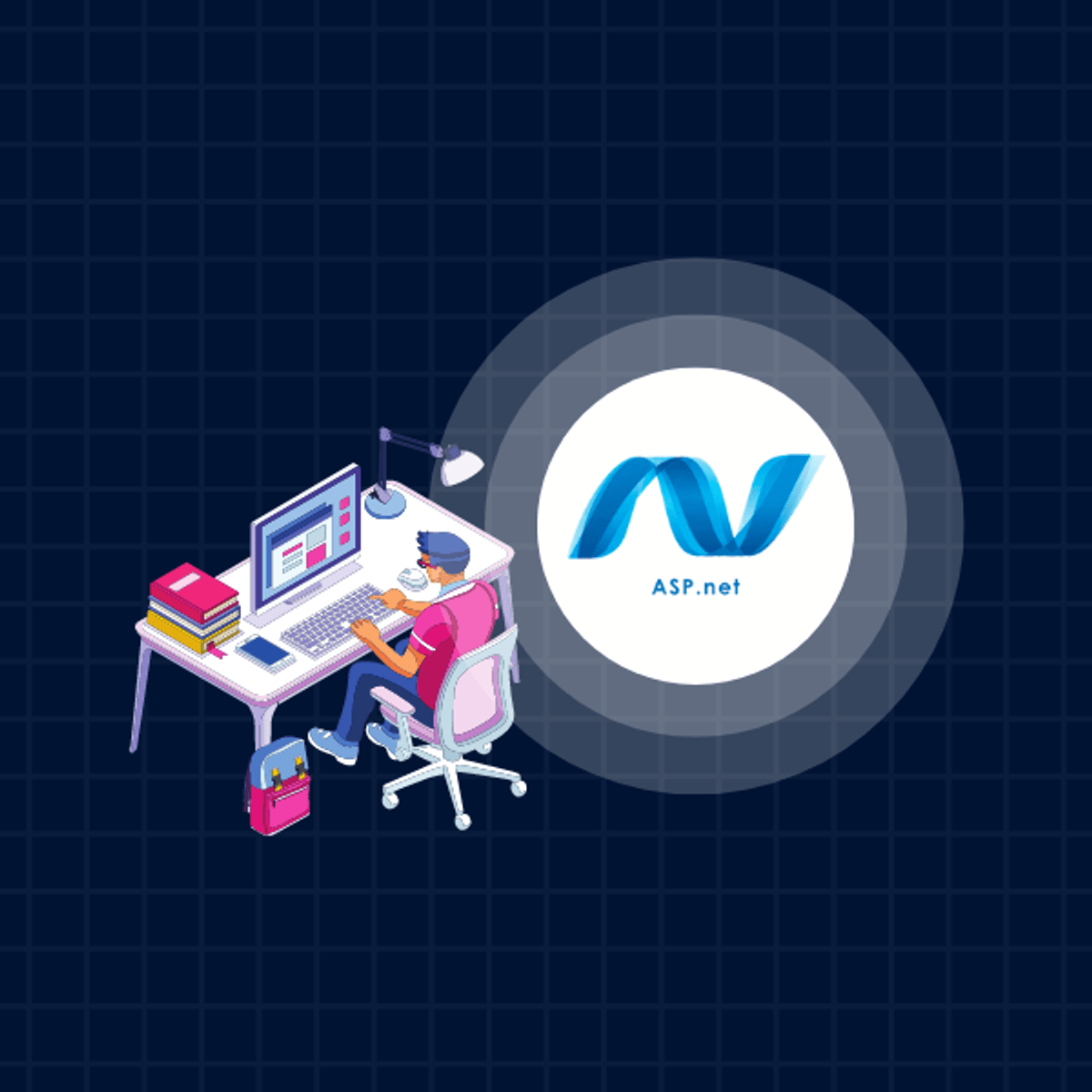Web Architect
Exploring a Career as a Web Architect
A Web Architect is a central figure in the digital world, responsible for designing the blueprint of websites and web applications. They focus on the technical structure, ensuring that the system is robust, scalable, and performs well. Think of them as the master planners for complex online systems, deciding how different parts like servers, databases, and user interfaces will work together seamlessly.
Working as a Web Architect can be incredibly engaging. You get to solve complex puzzles, figuring out the best way to build systems that handle vast amounts of traffic and data. It's a role that demands both deep technical knowledge and strong strategic thinking. Plus, you often collaborate closely with development teams, project managers, and clients, making communication and leadership key aspects of the job.
Overview of Web Architecture
Understanding the fundamentals of web architecture is the first step toward appreciating the role of a Web Architect. It involves making high-level design choices and setting technical standards, including software coding standards, tools, and platforms.
Defining Web Architecture
Web architecture refers to the conceptual structure of the World Wide Web. More specifically, it defines the components, relationships, and principles governing the design and evolution of web-based systems. It's about creating a plan that outlines how a web application will function, how its parts will interact, and how it will scale to meet future demands.
This involves selecting appropriate technologies, designing data storage solutions, ensuring security, and planning for performance. The goal is a system that is not only functional but also reliable, maintainable, and efficient. It's a discipline that blends technical expertise with strategic planning.
Essentially, web architecture provides the foundation upon which web applications are built. A well-designed architecture ensures the application can grow, adapt to new requirements, and deliver a positive user experience consistently.
Key Components of Web Systems
Web applications are complex systems composed of several interconnected parts. At the core, you have servers, which host the application and handle requests from users. Databases store and manage the application's data, from user accounts to product information.
APIs (Application Programming Interfaces) act as messengers, allowing different software components to communicate with each other. For example, an API might connect the frontend (what the user sees and interacts with) to the backend (the server-side logic and data).
Frontend systems are built using technologies like HTML, CSS, and JavaScript frameworks (e.g., React, Vue). Backend systems handle the business logic, data processing, and server management, often using languages like Java, Python, Node.js, or C# and frameworks like Spring or ASP.NET.
These foundational courses can help build an understanding of frontend and backend technologies.
Understanding the interplay between these components is crucial for anyone involved in web development or architecture.
Relationship to Software Engineering and UX Design
Web architecture sits at the intersection of several disciplines, most notably software engineering and User Experience (UX) design. Software engineering principles guide the construction of the application, focusing on code quality, maintainability, and development processes.
UX design, on the other hand, focuses on the user's interaction with the application. While a UX designer crafts the user journey and interface, the web architect ensures the underlying structure can support that experience effectively. Performance, loading times, and responsiveness are architectural concerns that directly impact UX.
A web architect must understand both domains. They translate user needs and business requirements (often informed by UX research) into technical specifications that software engineers can implement. They ensure the final product is technically sound and delivers a great user experience.
This course explores building user experiences, a key consideration for architects.
Historical Evolution
Web architecture has evolved significantly since the early days of the internet. Initially, websites were simple static HTML pages served directly from a file system. There wasn't much complexity in terms of architecture.
The advent of server-side scripting languages (like Perl, PHP) and databases led to dynamic web applications. Architectures became more complex, involving application servers, database servers, and distinct frontend/backend layers (often known as N-tier architectures).
Today, we see sophisticated architectural patterns like microservices, serverless computing, and Progressive Web Apps (PWAs). These modern approaches aim to improve scalability, resilience, and development speed, reflecting the ever-increasing demands placed on web applications.
Roles and Responsibilities of a Web Architect
The title "Web Architect" implies a senior role focused on the high-level design and technical strategy of web-based systems. Their responsibilities go beyond coding and involve shaping the entire technical landscape of a project or organization.
System Design and Scalability Planning
A core responsibility is designing the overall structure of the web application. This involves choosing the right technologies, defining how components interact, and ensuring the system meets functional requirements. Architects create blueprints and technical specifications that guide development teams.
Scalability is paramount. Web Architects must design systems capable of handling growth, whether it's an increase in users, data volume, or feature complexity. They plan for future needs, anticipating bottlenecks and designing solutions that can be expanded efficiently without major redesigns.
This involves selecting appropriate database technologies, designing caching strategies, and implementing load balancing. They constantly evaluate trade-offs between performance, cost, and complexity to achieve optimal scalability.
These resources cover technologies relevant to building scalable systems.
Security Protocols and Data Governance
Security is a critical concern in web architecture. Architects are responsible for designing systems that protect sensitive data and resist attacks. This includes implementing secure authentication mechanisms, protecting against common web vulnerabilities (like SQL injection or cross-site scripting), and ensuring data encryption.
Data governance involves managing the availability, usability, integrity, and security of data. Web Architects define policies and procedures for data handling, ensuring compliance with regulations like GDPR or CCPA. They design how data flows through the system and how it's stored securely.
They work closely with security specialists but ultimately bear responsibility for integrating security considerations into the fundamental design of the application architecture. Building secure systems from the ground up is more effective than trying to add security later.
Cross-functional Collaboration
Web Architects rarely work in isolation. They are key collaborators, bridging the gap between technical teams and business stakeholders. They communicate architectural decisions and their implications to developers, testers (QA), operations teams (DevOps), project managers, and sometimes clients.
Effective communication is crucial. Architects must articulate complex technical concepts clearly to diverse audiences. They need to understand business goals and translate them into technical requirements, while also understanding the constraints and capabilities of the development and operations teams.
They facilitate discussions, mediate disagreements on technical approaches, and ensure everyone is aligned with the architectural vision. This collaborative aspect requires strong interpersonal and leadership skills.
Performance Optimization Strategies
Ensuring the web application performs well under load is another key responsibility. Architects identify potential performance bottlenecks and design solutions to mitigate them. This might involve optimizing database queries, implementing efficient caching, using Content Delivery Networks (CDNs), or choosing performant algorithms.
They define performance metrics and standards, often working with QA and DevOps teams to set up monitoring and load testing. Analyzing performance data helps them pinpoint areas for improvement and validate architectural choices.
Performance optimization is an ongoing process. As the application evolves and traffic patterns change, architects continually reassess and refine the architecture to maintain optimal speed and responsiveness, directly impacting user satisfaction and business success.
Understanding modern techniques like Server Side Rendering (SSR) can be crucial for performance.
Career Progression in Web Architecture
Becoming a Web Architect typically requires significant experience and a deep understanding of web technologies and system design principles. It's generally considered a senior role within the software development career ladder.
Typical Entry Points and Experience
Most Web Architects start their careers in related technical roles. Common entry points include positions like Web Developer (Frontend, Backend, or Full-Stack), Software Engineer, or Systems Engineer. These roles provide the foundational coding skills and understanding of system components.
Gaining several years of hands-on experience (often 5-10 years, though it varies) in building and maintaining web applications is usually necessary. Experience with system design, dealing with scalability challenges, and leading technical aspects of projects are crucial stepping stones.
Transitioning often involves demonstrating leadership, strong problem-solving skills, and the ability to think strategically about technology choices and their long-term implications. It's less about mastering a specific language and more about understanding architectural patterns and principles.
According to Zippia, it typically takes 2-4 years of experience in roles like web developer or senior software engineer before moving into a web architect position, although this timeframe can vary significantly based on individual aptitude and opportunities.
Promotion and Advancement
Within a corporate environment, promotion to Web Architect often follows demonstrated success in senior development or technical lead roles. Criteria typically include technical expertise, leadership capabilities, successful project delivery, and strategic thinking.
In startups, the path might be less formal. A senior engineer might naturally take on architectural responsibilities as the company and its product scale. The environment often demands versatility and a willingness to wear multiple hats.
Beyond the Web Architect role, potential advancement paths include Principal Architect, Chief Architect, or transitioning into broader technical leadership roles like Chief Technology Officer (CTO), especially in smaller organizations. Some architects also move into technical consultancy, leveraging their expertise across various clients and projects.
Salary expectations vary based on experience, location, and company size. As of April 2025, ZipRecruiter reports an average annual salary of $127,531 for Web Architects in the US, with ranges typically between $82,500 and $149,500. Zippia suggests a similar average of $112,335, ranging from $85,000 to $147,000. High earners can surpass $170,000-$195,000.
Certifications vs. Experience
While hands-on experience is paramount, certifications can complement a Web Architect's profile. Certifications from major cloud providers (like AWS Certified Solutions Architect, Google Professional Cloud Architect, Azure Solutions Architect Expert) are highly valued as they demonstrate expertise in specific ecosystems widely used for web applications.
Other relevant certifications might cover areas like enterprise architecture (e.g., TOGAF) or specific technologies. However, certifications alone are rarely sufficient. Employers prioritize proven ability to design and deliver robust, scalable systems.
Ultimately, a combination is often best. Deep experience provides practical wisdom, while certifications can validate knowledge of specific platforms and industry best practices, potentially opening doors or strengthening candidacy for roles.
Education and Skill Development
Building a career in web architecture requires a blend of formal education, continuous learning, and practical experience. Both traditional academic paths and self-directed learning play significant roles.
Formal Education Pathways
A bachelor's degree in Computer Science, Software Engineering, Information Technology, or a related field is a common starting point. These programs provide essential theoretical knowledge in algorithms, data structures, operating systems, databases, and networking.
Some universities offer specialized degrees or tracks focusing on web development or distributed systems. While not strictly necessary, these can provide a more targeted foundation. Coursework often includes programming, software design principles, and database management.
For those seeking deeper expertise, a Master's degree focusing on areas like distributed systems, cloud computing, or software architecture can be beneficial. Some employers may prefer candidates with advanced degrees for architect roles. Research areas relevant to the future of web architecture include quantum computing's potential impact, edge computing architectures, and AI-driven systems.
Self-Directed Learning and Online Courses
The tech landscape evolves rapidly, making continuous learning essential. Self-directed learning, particularly through online resources, is crucial for staying current. Online courses offer flexible and accessible ways to acquire new skills or deepen existing knowledge.
Online platforms provide courses covering specific technologies (like cloud platforms, containerization tools, specific frameworks), architectural patterns (microservices, serverless), and essential concepts (security, performance tuning). Learners can tailor their education to match career goals or specific project needs.
These courses offer structured learning paths for key web technologies and architectural concepts.
OpenCourser makes it easy to browse through thousands of courses across various domains like Programming and Cloud Computing. Features like summarized reviews and syllabi help learners find the right fit.
For those looking to supplement their learning, consider these books on core web technologies and design patterns.
Building Practical Experience
Theoretical knowledge must be paired with hands-on practice. Contributing to open-source projects is an excellent way to gain experience, collaborate with others, and demonstrate skills to potential employers. It provides exposure to real-world codebases and development practices.
Setting up personal cloud labs (using free tiers from AWS, Azure, or Google Cloud) allows for experimentation with different services and architectures without significant cost. Building personal projects, even small ones, helps solidify concepts learned through courses or reading.
Reverse-engineering existing large-scale systems, by studying their architecture through technical blogs, conference talks, or available documentation, can provide valuable insights into how complex problems are solved in practice. Engaging with tech communities, attending meetups, and finding mentors can also accelerate learning and provide valuable guidance.
Tools and Technical Competencies
A Web Architect needs a broad and deep understanding of various tools and technologies spanning the entire web stack, from infrastructure to the frontend.
Infrastructure and Deployment Tools
Modern web architecture heavily relies on cloud platforms (AWS, Azure, Google Cloud). Proficiency in at least one major cloud provider is essential. Understanding core services like compute instances, databases, storage, and networking is fundamental.
Infrastructure-as-Code (IaC) tools like Terraform and AWS CloudFormation are standard for managing cloud resources programmatically. Containerization technologies, primarily Docker, and container orchestration platforms like Kubernetes, are crucial for deploying and scaling applications consistently.
Familiarity with CI/CD (Continuous Integration/Continuous Deployment) pipelines and tools (e.g., Jenkins, GitLab CI, GitHub Actions) is also necessary for automating the build, test, and deployment processes.
This course provides a hands-on introduction to Docker, a key deployment technology.
Performance and Monitoring
Architects must ensure applications perform well and remain available. This requires knowledge of load testing tools (like JMeter, k6) to simulate user traffic and identify bottlenecks before they impact real users.
Monitoring frameworks and platforms (e.g., Datadog, New Relic, Prometheus, Grafana) are vital for observing system health, tracking performance metrics, and setting up alerts. Understanding how to interpret monitoring data is key to diagnosing issues and optimizing performance.
Techniques like caching (using tools like Redis or Memcached), database optimization, and content delivery networks (CDNs) are standard tools in the architect's performance optimization toolkit.
Architectural Patterns and Technologies
Web Architects must be familiar with various architectural patterns and know when to apply them. This includes understanding monolithic vs. microservices architectures, event-driven architectures, and serverless patterns.
Expertise in API design (RESTful APIs, GraphQL) is essential for building systems where components communicate effectively. Knowledge of both relational (SQL) and NoSQL databases (like MongoDB, Cassandra) is needed to choose the right data storage solution.
Staying updated on frontend frameworks (React, Angular, Vue.js), backend frameworks (Spring Boot, Node.js/Express, Django, Ruby on Rails, ASP.NET), and potentially newer technologies like WebAssembly is part of the job.
These courses and books cover important frameworks and concepts in web development.
Modernization and Cloud Strategies
Many organizations deal with legacy systems. Architects often lead efforts to modernize these systems, perhaps by migrating them to the cloud, breaking down monoliths into microservices, or updating outdated technology stacks.
Developing multi-cloud or hybrid-cloud strategies is increasingly common, requiring architects to understand how to design systems that span different cloud environments or combine cloud and on-premises resources effectively.
Understanding cloud migration strategies (like rehosting, replatforming, refactoring) and the associated challenges is crucial for architects involved in digital transformation initiatives.
This course provides an overview of modernization strategies using Google Cloud.
Web Architecture in Global Markets
The role and demands of a Web Architect can vary depending on the geographic region and the specific industry sector. Global trends also impact the profession.
Regional Demand and Specialization
Demand for Web Architects exists globally, but specific needs can differ. Financial centers might have high demand for architects specializing in fintech, focusing on high-security, high-transaction systems. Regions with strong e-commerce or SaaS industries will prioritize architects skilled in scalability and user experience.
In areas with significant government technology initiatives (eGov), architects may focus on public-facing systems requiring high availability and accessibility. The specific technology stacks popular in a region can also influence the required skills.
Emerging markets present unique challenges and opportunities. Architects might grapple with less reliable infrastructure or different regulatory environments, requiring adaptable and resilient system designs.
Remote Work and Offshoring Trends
Like many tech roles, web architecture has seen an increase in remote work possibilities. Cloud technologies and collaboration tools facilitate distributed teams, allowing companies to hire architects from a global talent pool. This trend offers flexibility for architects but also increases global competition.
While some architecture tasks benefit from in-person collaboration, many aspects, particularly design and planning, can be done effectively remotely. Reports from 2020-2021 showed a significant temporary shift to remote work in architecture fields due to the pandemic, and while many firms returned to offices, hybrid models and fully remote possibilities persist, especially in tech-focused roles like web architecture.
Offshoring of development work continues, but core architectural roles often remain closer to the primary business location due to their strategic importance. However, distributed architecture teams spanning multiple countries are becoming more common.
Compliance and Regulations
Operating globally means dealing with diverse legal and regulatory landscapes. Web Architects must design systems compliant with data privacy regulations like Europe's GDPR (General Data Protection Regulation) or California's CCPA (California Consumer Privacy Act).
Other regulations might involve data localization (requiring data to be stored within specific borders), accessibility standards (like WCAG), or industry-specific compliance rules (e.g., HIPAA in healthcare, PCI DSS in finance).
Architects need to stay informed about relevant regulations in the markets their applications serve and incorporate compliance requirements into the system design from the outset.
Ethical Challenges in Web Architecture
Designing and building web systems comes with ethical responsibilities. Architects' decisions can have far-reaching impacts on users, society, and the environment.
Sustainability and Environmental Impact
Large-scale data centers and the infrastructure supporting the web consume significant amounts of energy. Architects face the challenge of designing energy-efficient systems. This involves choosing efficient algorithms, optimizing resource utilization, and potentially selecting cloud providers committed to renewable energy sources.
The environmental footprint of technology is a growing concern. Architectural choices regarding data storage, processing intensity, and infrastructure deployment directly influence energy consumption and associated carbon emissions.
Designing for sustainability might involve trade-offs with performance or cost, requiring architects to consider the environmental impact alongside traditional technical and business metrics.
Algorithmic Bias and Fairness
Web applications increasingly use algorithms for recommendations, content filtering, or decision-making. Architects involved in systems incorporating Machine Learning (ML) or AI must be aware of the potential for algorithmic bias.
Bias in data or algorithms can lead to unfair or discriminatory outcomes for certain user groups. While data scientists often develop the models, architects design the systems where these models operate and must consider fairness implications in the overall design.
Ensuring transparency and explainability in algorithmic systems, where possible, is an emerging ethical consideration. Architects contribute to building systems that are not only functional but also fair and accountable.
The W3C has published Ethical Web Principles, highlighting the need to consider societal impact and fairness in web technologies.
Data Privacy and Sovereignty
Protecting user privacy is a fundamental ethical obligation. Architects design systems that handle personal data, making decisions about collection, storage, access control, and deletion crucial. They must ensure compliance with privacy regulations and implement robust security measures.
Data sovereignty, the concept that data is subject to the laws of the country in which it's located, adds complexity. Architects designing global systems must navigate differing regulations and potentially design architectures that allow data to be stored and processed in specific regions.
Balancing data privacy requirements with the need for data analysis (for improving services or business intelligence) and system performance presents ongoing ethical challenges for architects.
Accessibility and Inclusivity
The web should be accessible to everyone, including people with disabilities. Web Architects play a role in ensuring that applications are designed and built according to accessibility standards (like WCAG).
While developers implement specific accessibility features, architects make high-level decisions about frameworks, technologies, and overall structure that can impact accessibility. Prioritizing accessibility from the architectural level helps ensure it's not an afterthought.
Building inclusive platforms means considering diverse user needs, cultural contexts, and varying levels of technical literacy. Architects contribute by designing systems that are usable and welcoming to the broadest possible audience.
Industry Trends Shaping Web Architecture
The field of web architecture is constantly evolving, driven by technological advancements and changing business needs. Staying aware of key trends is vital for architects.
Serverless Architectures and FaaS
Serverless computing, including Function-as-a-Service (FaaS), continues to gain traction. This approach allows developers to build and run applications without managing the underlying servers. Cloud providers handle infrastructure provisioning, scaling, and maintenance.
Architects are increasingly designing systems using serverless components (like AWS Lambda, Azure Functions, Google Cloud Functions) for specific tasks or even entire applications. This impacts cost, scalability, and development speed. Datadog's State of Serverless report indicates significant adoption across major cloud providers, with growth particularly noted in container-based serverless workloads.
Understanding the benefits (cost savings for idle time, automatic scaling) and challenges (cold starts, vendor lock-in, monitoring complexity) of serverless architectures is crucial for modern web architects. Mordor Intelligence projects significant growth in the serverless computing market, expecting it to register a CAGR of over 23% in the coming years.
WebAssembly (Wasm)
WebAssembly is a binary instruction format that allows code written in languages other than JavaScript (like C++, Rust, Go) to run in web browsers at near-native speed. It's not meant to replace JavaScript but to complement it for performance-critical tasks.
Wasm opens possibilities for running complex applications like games, video editors, and scientific simulations directly in the browser. Its impact extends beyond the browser, with growing use cases on the server-side and in edge computing for its performance and portability benefits.
Architects need to understand where WebAssembly can provide significant advantages and how to integrate Wasm modules into their applications. The ecosystem around Wasm, including tools and language support, is rapidly evolving.
This course explores WebAssembly development and its potential applications.
AI-Driven Systems
Artificial Intelligence (AI) and Machine Learning (ML) are increasingly integrated into web applications, from chatbots and recommendation engines to automated content moderation and predictive analytics. Architects need to design systems capable of supporting AI/ML workflows.
This involves understanding data pipelines, model deployment strategies (MLOps), and how to integrate ML models with the rest of the application. AI is also being applied to infrastructure management itself, with AI-driven auto-scaling systems that predict load and adjust resources proactively.
Architects must consider the computational requirements, data needs, and ethical implications of incorporating AI/ML components into their designs.
Decentralization and Web3
While still evolving, concepts from Web3 and decentralized technologies (like blockchain, distributed storage) are influencing architectural thinking. These technologies aim to create more user-centric, resilient, and censorship-resistant applications.
Architects may explore using decentralized identity systems, storing data on distributed networks, or building applications that interact with blockchains. This area presents significant technical challenges, including scalability, usability, and security.
Understanding the principles and potential applications of decentralization helps architects stay informed about future directions, even if widespread adoption is still uncertain.
Frequently Asked Questions
Navigating a career path, especially in a dynamic field like web architecture, often brings up questions. Here are answers to some common inquiries.
Is web architecture becoming obsolete with no-code/low-code platforms?
No-code and low-code platforms are powerful tools for building simpler applications quickly, often without deep technical expertise. They excel at automating common tasks and workflows. However, they are not replacing the need for web architects.
Complex, large-scale, high-performance applications still require custom architecture and development. Architects deal with challenges like massive scalability, intricate integrations, stringent security requirements, and performance optimization that go beyond the capabilities of typical no-code/low-code tools.
Instead of making architects obsolete, these platforms become another tool in the ecosystem. Architects might even design systems that integrate with or leverage low-code solutions for specific parts of an application, focusing their efforts on the more complex, custom-built components.
How does the role differ between large tech companies (FAANG) and smaller businesses (SMEs)?
In large tech companies (like FAANG - Facebook/Meta, Amazon, Apple, Netflix, Google), Web Architects often work on systems operating at an enormous scale. They might specialize deeply in a specific area (e.g., database architecture, network architecture for a specific service) and deal with cutting-edge technologies and complex distributed systems.
In Small and Medium-sized Enterprises (SMEs), an architect's role might be broader. They might be responsible for the architecture of the entire product or platform, requiring a wider range of skills but perhaps dealing with less extreme scale. They may also be more involved in hands-on implementation or have closer interaction with business stakeholders.
The resources available, team structures, and development processes also differ significantly. Large companies often have established architectural review processes and dedicated platform teams, while SMEs might require architects to be more self-sufficient.
What soft skills are most critical for advancement?
While technical skills are foundational, soft skills are crucial for success and advancement as a Web Architect. Communication is paramount – the ability to explain complex technical ideas clearly to both technical and non-technical audiences, write clear documentation, and present architectural visions effectively.
Leadership skills are vital for guiding development teams, influencing technical direction, and mentoring junior engineers. Collaboration and teamwork are essential for working effectively across different functions (development, operations, product management, security).
Problem-solving and critical thinking help architects analyze complex requirements and design effective solutions. Strategic thinking allows them to align technical decisions with long-term business goals and anticipate future needs. Adaptability and a continuous learning mindset are also key in this rapidly changing field.
How do you handle imposter syndrome in highly technical roles?
Imposter syndrome – feeling like a fraud despite evidence of competence – is common in demanding technical fields like web architecture. Acknowledging these feelings is the first step. Remember that architecture involves constant learning; no one knows everything.
Focus on your strengths and past accomplishments. Break down large, complex problems into smaller, manageable parts. Seek feedback regularly from trusted peers or mentors; external validation can help counteract internal doubts.
Embrace collaboration – architecture is often a team effort. Don't be afraid to ask questions or admit when you don't know something. Continuous learning itself can build confidence, as can mentoring others, which reinforces your own knowledge.
What about career longevity with rapid tech obsolescence?
Technology changes rapidly, and specific tools or frameworks can become outdated. However, the fundamental principles of good software and system architecture – scalability, reliability, maintainability, security – endure. Career longevity comes from focusing on these core principles rather than just specific technologies.
Architects ensure their longevity by being continuous learners, adapting to new paradigms (like cloud, serverless, microservices), and understanding the trade-offs of different approaches. The ability to evaluate new technologies critically and integrate them effectively is a valuable skill.
Focusing on transferable skills like system design, problem-solving, leadership, and communication provides a stable foundation regardless of which specific programming language or framework is currently popular.
Is freelance or consulting viable compared to full-time roles?
Yes, freelance and consulting are viable paths for experienced Web Architects. Many organizations need specialized architectural expertise for specific projects, migrations, or strategic reviews but may not need a full-time architect permanently.
Consultants leverage their broad experience to advise multiple clients. Freelancers might take on project-based architectural roles. Success in these paths requires strong self-management, business development skills (finding clients), and the ability to quickly understand diverse business contexts and technical environments.
Compared to full-time roles, freelance/consulting offers more autonomy and potentially higher earning rates but comes with less stability, the need to manage administrative tasks (billing, taxes), and the constant requirement to find new engagements. It's a trade-off that suits individuals seeking variety and independence.
Conclusion
The role of a Web Architect is challenging, dynamic, and rewarding, sitting at the heart of modern digital application development. It requires a deep technical foundation combined with strategic thinking, leadership, and excellent communication skills. While the path requires significant experience and continuous learning, it offers the opportunity to shape complex systems, solve intricate problems, and have a substantial impact on technology and business outcomes. Whether pursuing this path within a large corporation, a nimble startup, or as an independent consultant, a career in web architecture offers a stimulating journey for dedicated technologists.
For those exploring this path, resources like OpenCourser's Learner's Guide can provide valuable insights into effective self-study strategies and making the most of online learning resources.













